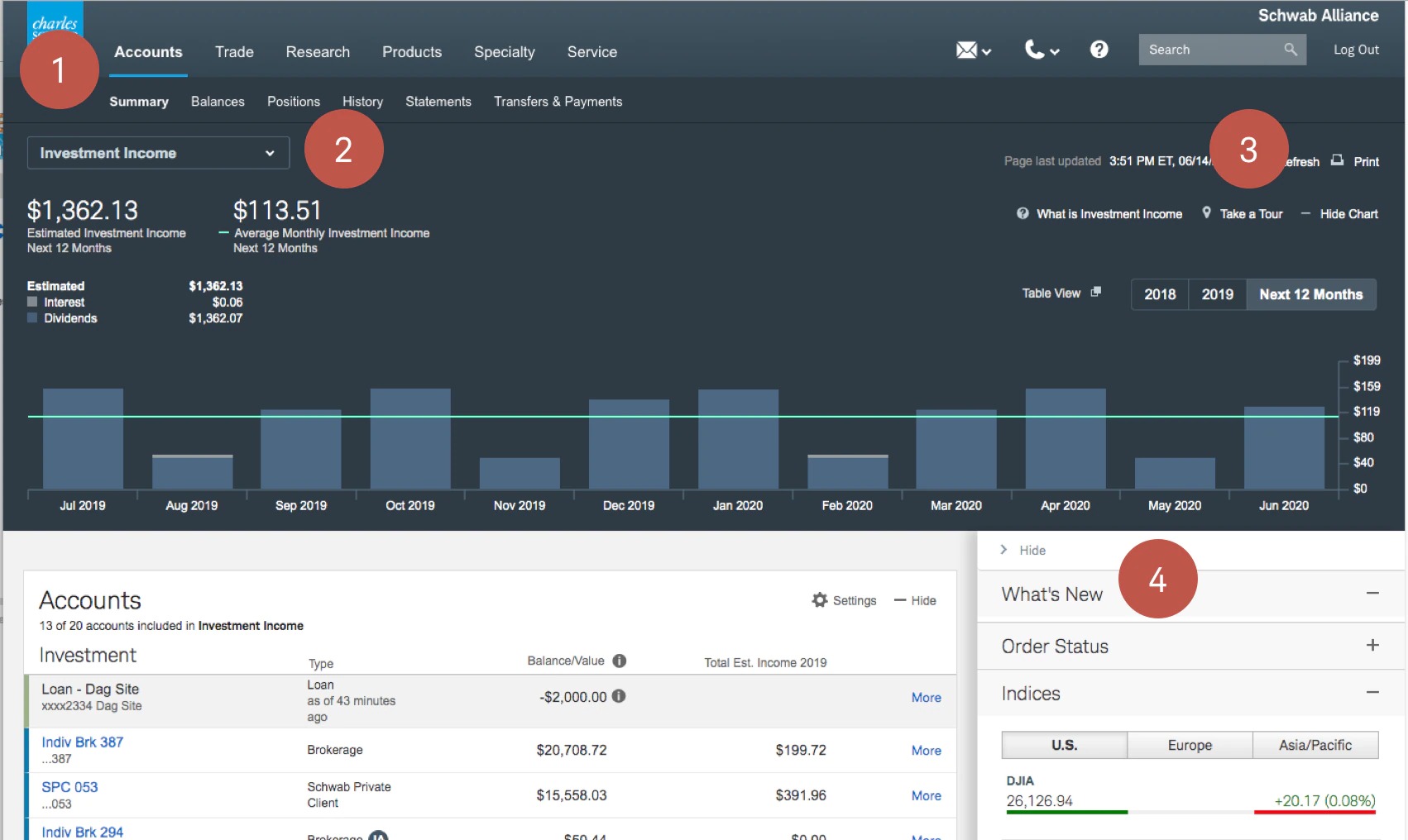Home>Finance>What Happens If You Don’t Do An Insurance Audit


Finance
What Happens If You Don’t Do An Insurance Audit
Published: November 21, 2023
Learn what can happen if you neglect to conduct a finance insurance audit. Protect your assets and avoid potential financial risks by taking proactive measures.
(Many of the links in this article redirect to a specific reviewed product. Your purchase of these products through affiliate links helps to generate commission for LiveWell, at no extra cost. Learn more)
Table of Contents
- Introduction
- What is an insurance audit?
- Why is an insurance audit important?
- Consequences of not conducting an insurance audit
- Financial risks of skipping an insurance audit
- Legal implications of not performing an insurance audit
- Impact on insurance coverage
- How to avoid the pitfalls of neglecting an insurance audit
- Conclusion
Introduction
Insurance audits are an integral part of managing your finances and protecting your assets. Yet, many individuals and businesses overlook the importance of conducting regular insurance audits. From small business owners to homeowners, the consequences of neglecting an insurance audit can be significant.
But what exactly is an insurance audit? And why is it so crucial to your financial well-being? In this article, we will explore the concept of insurance audits and delve into the potential risks and challenges that can arise if you fail to perform this essential task.
An insurance audit is a systematic review of your insurance policies and coverage to ensure they accurately reflect your current situation. It involves assessing the value of your assets, estimating potential liabilities, and adjusting your insurance policies accordingly. This assessment helps determine the appropriate levels of coverage and ensures that you are adequately protected.
Now, you may be wondering why this process is so important. The answer is simple: an insurance audit helps safeguard your financial interests. By regularly reviewing and updating your insurance policies, you can mitigate any potential gaps in coverage and avoid financial hardships in the event of an unexpected loss or claim.
Without conducting an insurance audit, you run the risk of being underinsured or overpaying for coverage you don’t need. This can leave you vulnerable to financial strain and potentially lead to difficulties in rebuilding or replacing your assets in the event of a disaster.
In the following sections, we will explore the specific consequences of not performing an insurance audit. From financial risks to legal implications and inadequate coverage, we will shed light on the potential pitfalls and offer some guidance on how to avoid them.
What is an insurance audit?
An insurance audit is a systematic review and evaluation of your insurance policies and coverage. It involves assessing the accuracy of the information provided to the insurance company, verifying the value of your assets, and ensuring that the coverage limits are appropriate for your current situation.
During an insurance audit, you may be required to provide documentation and records that support the information on your policies. This can include financial statements, inventory lists, payroll records, and other relevant documentation. The purpose of these audits is to determine if any adjustments need to be made to your insurance coverage to adequately reflect changes in your circumstances.
Insurance audits are typically conducted by the insurance company or a third-party audit service. The frequency of audits can vary depending on the type of insurance and the policies in place. For example, businesses may undergo annual audits, while homeowners may be audited less frequently.
The main goals of an insurance audit are to:
- Ensure accurate coverage: An insurance audit ensures that your policies accurately reflect your assets, liabilities, and potential risks. It helps determine if your coverage limits are adequate and if any adjustments need to be made to protect your financial well-being.
- Prevent underinsurance: By evaluating the value of your assets and reassessing your policies, an insurance audit helps prevent underinsurance. Underinsurance occurs when the coverage limits are not sufficient to cover the full extent of a loss or claim.
- Prevent overpayment: On the other hand, an insurance audit also helps prevent overpayment for coverage you don’t need. By reassessing your policies and adjusting them according to your current situation, you can avoid paying excessive premiums for unnecessary coverage.
- Mitigate risks: Conducting regular insurance audits helps identify potential risks and vulnerabilities in your coverage. By addressing these gaps, you can reduce the financial risks associated with unexpected events and ensure that you are adequately protected.
Overall, an insurance audit is a proactive measure to assess and manage your insurance coverage. It is a crucial step in protecting your financial interests and ensuring that you have the appropriate level of coverage for your specific needs.
Why is an insurance audit important?
Insurance audits play a vital role in safeguarding your financial well-being. They are essential for several reasons:
1. Accuracy of coverage: An insurance audit ensures that your policies accurately reflect your current assets, liabilities, and potential risks. By reviewing and updating your coverage, you can avoid gaps in protection and ensure that your policies provide adequate coverage in the event of a claim or loss.
2. Adequacy of coverage limits: Over time, the value of your assets and potential risks may change. With an insurance audit, you can reassess your coverage limits and adjust them to align with your current circumstances. This helps ensure that you have adequate coverage and avoid being underinsured, which could lead to significant financial hardships in the event of a claim.
3. Cost-saving opportunities: Conducting regular insurance audits can also help identify potential cost-saving opportunities. By evaluating your policies, you can identify areas where coverage may not be necessary or where you may be overpaying for coverage. This allows you to make informed decisions and potentially reduce your insurance premiums.
4. Risk mitigation: Insurance audits help identify potential risks and vulnerabilities in your coverage. By addressing these gaps, you can mitigate the financial risks associated with unexpected events. This proactive approach helps protect your financial interests and provides peace of mind in knowing that you are adequately protected.
5. Compliance with policy requirements: Many insurance policies have specific requirements or conditions that must be met for coverage to be valid. An insurance audit helps ensure that you are compliant with these requirements, such as maintaining a certain level of security measures in your home or conducting regular equipment inspections for business insurance.
6. Legal obligations: In some cases, insurance audits may be legally required. For example, businesses may be obligated to undergo regular audits to comply with industry regulations or satisfy their contractual obligations with lenders or investors. Failing to conduct these audits can result in legal penalties or the invalidation of your insurance coverage.
Overall, insurance audits are critical for maintaining accurate coverage, protecting your financial interests, and ensuring compliance with policy requirements. By regularly assessing and adjusting your insurance policies, you can mitigate risks, avoid financial hardships, and have peace of mind knowing that you are adequately protected.
Consequences of not conducting an insurance audit
Neglecting to perform regular insurance audits can have several negative consequences that can significantly impact your financial well-being. Let’s explore some of the key repercussions of not conducting an insurance audit:
1. Inadequate Coverage: Without performing an insurance audit, you may be unaware that your coverage is insufficient for your current needs. This can leave you vulnerable to financial loss in the event of a claim or disaster. For example, if you have acquired new assets or expanded your business operations, failing to update your policies can result in not having enough coverage to protect these assets.
2. Underinsurance: Underinsurance occurs when the coverage limits on your policies are insufficient to fully cover the extent of a loss or claim. This can be the result of not regularly reassessing your coverage needs. In the event of a claim, you may find yourself responsible for covering significant costs out of pocket, leading to financial strain and potential hardships.
3. Financial Losses: By not conducting an insurance audit, you run the risk of being unprepared for unexpected events that could result in significant financial losses. Without proper coverage, you may be unable to adequately recover from damages or liabilities, forcing you to bear the expenses yourself.
4. Missed Cost-Saving Opportunities: Regular insurance audits can help identify areas where you may be overpaying for coverage or where certain coverage may no longer be necessary. Failing to conduct these audits means potentially missing out on cost-saving opportunities that could reduce your insurance premiums.
5. Legal Non-Compliance: Some insurance policies have specific requirements or conditions that must be met in order to maintain coverage. By not conducting an insurance audit, you may inadvertently violate these requirements, leading to the potential invalidation of your coverage. This can expose you to legal risks and potential liabilities.
6. Limited Liability Protection: Insurance is designed to protect you from financial burdens and lawsuits. However, if you fail to conduct regular audits, your coverage may not be sufficient to adequately protect you against potential liability claims. This can leave you personally responsible for legal fees and damages, putting your personal assets at risk.
7. Difficulty in Recovery: In the event of a loss, not having accurate and up-to-date insurance coverage can make the recovery process more challenging. It can lead to delays and complications when filing claims and hinder your ability to rebuild or replace damaged assets.
Overall, the consequences of neglecting an insurance audit can be significant. From inadequate coverage and financial losses to legal non-compliance and limited liability protection, the impact can be detrimental to your financial well-being. It is crucial to prioritize regular insurance audits to mitigate these risks and ensure that you have the appropriate coverage to protect your assets and interests.
Financial risks of skipping an insurance audit
Skipping an insurance audit can expose you to various financial risks that can have long-lasting implications for your financial well-being. Let’s explore some of the key financial risks associated with neglecting an insurance audit:
1. Underestimated Coverage: Without conducting an insurance audit, you run the risk of underestimating the value of your assets and liabilities. This can result in inadequate coverage limits on your policies, leaving you financially vulnerable in the event of a claim or loss. Inadequate coverage means you may have to bear a significant portion of the costs yourself, potentially leading to financial strain or even bankruptcy.
2. Insufficient Funds for Rebuilding or Replacement: In the event of a disaster, such as a fire or natural calamity, not having accurate and up-to-date insurance coverage can leave you struggling to rebuild or replace damaged or destroyed assets. Without sufficient funds from your insurance coverage, you may have to dip into your savings or take on significant debt to recover, impacting your financial stability.
3. Increased Out-of-Pocket Expenses: Skipping an insurance audit can result in gaps in your coverage, leaving you responsible for covering certain costs out of pocket. Whether it’s medical expenses from a personal injury claim or property damage repairs, these unexpected expenses can significantly strain your finances and disrupt your financial plans.
4. Inability to Meet Financial Obligations: Inadequate insurance coverage due to neglecting an audit can leave you unable to fulfill your financial obligations. For business owners, this could mean being unable to pay for repairs, compensate employees, or meet contractual agreements. It can also result in legal consequences, damaged business reputation, and potential closure.
5. Difficulty in Getting Loans or Financing: If you are in a financial bind and need to secure a loan or financing, not having adequate insurance coverage can hinder your ability to obtain favorable terms. Lenders and financial institutions consider insurance coverage as a risk management measure and may be less willing to extend credit if you cannot demonstrate proper insurance coverage.
6. Decreased Asset Value: Inadequate insurance coverage due to skipping an audit can significantly diminish the value of your assets. Without proper protection, potential buyers or investors may view your assets as high risk, leading to decreased asset value and potentially limiting your options for selling or securing favorable business partnerships.
7. Business Interruption: For businesses, neglecting an insurance audit can result in inadequate coverage for business interruption. Without appropriate coverage, an unforeseen event such as a fire, natural disaster, or equipment failure can halt your business operations. This interruption can result in loss of income, customer dissatisfaction, and potential damage to your reputation.
It is essential to prioritize regular insurance audits to avoid these financial risks. By ensuring that your coverage accurately reflects your assets and liabilities, you can protect yourself from significant financial burdens and maintain your financial stability and peace of mind.
Legal implications of not performing an insurance audit
Not performing an insurance audit can have several legal implications that can impact your financial and legal standing. Let’s explore some of the key legal ramifications of neglecting an insurance audit:
1. Breach of Contract: Insurance policies are contractual agreements between the insured and the insurance company. Failing to conduct an insurance audit and update your coverage can result in a breach of contract. This breach may allow the insurance company to deny coverage or invalidate your policy, leaving you without financial protection in the event of a claim.
2. Non-Compliance with Legal Requirements: Many industries have specific insurance requirements mandated by law or regulatory bodies. Neglecting an insurance audit may lead to non-compliance with these legal obligations. Failure to meet these requirements can result in fines, penalties, business closures, or legal liabilities.
3. Legal Exposures: Inadequate insurance coverage due to neglecting an audit can leave you exposed to legal risks and liabilities. For example, if you are involved in a personal injury claim or property damage dispute, inadequate coverage can result in personal financial responsibility for legal fees, settlements, or judgments against you.
4. Invalidation of Coverage in the Event of a Claim: Insurance companies may conduct their own audits to verify the accuracy of policy information. If discrepancies are discovered, they may use this as grounds to deny coverage or invalidate your insurance policy. This can leave you financially responsible for damages or losses that would have otherwise been covered.
5. Loss of Legal Protection: Insurance often provides legal protection and defense in certain situations. For example, general liability insurance typically covers legal expenses in case of a lawsuit. Without proper insurance coverage resulting from an audit, you may lose this protection, leaving you personally responsible for legal fees and potential judgments.
6. Invalidating Loan Agreements and Contracts: Lenders and other parties may require proof of adequate insurance coverage as a condition for loans or contract agreements. Neglecting an insurance audit and not maintaining the necessary coverage can result in the invalidation of these agreements, leading to legal and financial consequences.
7. Delayed Legal Resolutions: Inadequate insurance coverage can lead to delays in legal resolutions. Without proper coverage, you may need to engage in lengthy negotiations or litigation processes to resolve claims or disputes. This can result in prolonged legal proceedings, increased legal expenses, and potential financial strain.
It is crucial to recognize the legal implications of neglecting an insurance audit. By conducting regular audits and maintaining accurate and adequate coverage, you can prevent breaches of contract, ensure compliance with legal requirements, and protect yourself from potential legal liabilities and financial hardships.
Impact on insurance coverage
Not performing regular insurance audits can have a significant impact on your insurance coverage. The lack of audits can result in gaps, exclusions, or inadequate coverage limits that leave you exposed to financial risks. Let’s explore some of the key impacts that neglecting an insurance audit can have on your coverage:
1. Coverage Gaps: Over time, your insurance needs may change due to acquiring new assets, making renovations, or expanding your business operations. Neglecting an insurance audit means you may miss adjusting your policies to cover these changes adequately. This can result in coverage gaps where certain assets or risks are not adequately protected, leaving you exposed to potential losses.
2. Underinsurance: Failing to conduct an insurance audit can result in being underinsured. Underinsurance occurs when the coverage limits on your policies are insufficient to fully compensate for a claim or loss. This can leave you responsible for covering a portion of the costs out of pocket, potentially leading to financial strain.
3. Exclusions and Limitations: Insurance policies often have specific exclusions and limitations that dictate what is covered and what is not. Neglecting an insurance audit may mean not properly understanding these exclusions and limitations, which can result in unexpected denials of coverage. Consequently, you may find yourself without the financial assistance you thought you had in the event of a claim.
4. Inaccurate Valuation: The value of your assets and liabilities is a crucial factor in determining appropriate insurance coverage. Neglecting an insurance audit can lead to inaccurate valuations, whether it’s undervaluing your assets or failing to account for new acquisitions. This can result in coverage limits that do not align with the actual value of your assets, potentially hindering your ability to fully recover from a loss.
5. Outdated Policies: Insurance policies may evolve with industry standards and regulations. Failing to conduct regular audits means your policies may become outdated and no longer reflect current market conditions or legal requirements. Outdated policies can leave you without critical coverage that is necessary to address emerging risks or changes in regulations.
6. Inadequate Liability Coverage: Neglecting an insurance audit can also impact your liability coverage. Liability risks can change over time, particularly in business environments where new risks may emerge. Without adjusting your policies accordingly, you may have insufficient coverage to protect against potential liabilities, exposing your personal or business assets to financial risks.
7. Difficulty Making Changes: Insurance companies typically require audits to make changes or updates to your policies. Neglecting an insurance audit can make it challenging to make necessary adjustments to your coverage, especially when it comes to increasing limits, adding endorsements, or making significant modifications to your policies.
Regular insurance audits are essential to ensure that your coverage accurately reflects your current situation and needs. By conducting audits, you can identify and address coverage gaps, prevent underinsurance, and make necessary adjustments to adequately protect your assets and mitigate financial risks.
How to avoid the pitfalls of neglecting an insurance audit
To avoid the potential negative consequences of neglecting an insurance audit, it is important to prioritize regular audits and follow a few key steps. By taking proactive measures, you can ensure that your insurance coverage remains accurate, up to date, and aligned with your current needs. Here’s how to avoid the pitfalls of neglecting an insurance audit:
1. Schedule Regular Audits: Set a reminder to conduct insurance audits at least once a year or whenever significant changes occur in your life or business. Regular audits will help you stay on top of any adjustments or updates needed to your policies.
2. Review Policy Information: Take the time to review the details of your insurance policies. Ensure that the coverage limits, deductibles, exclusions, and endorsements accurately reflect your current situation. Identify any discrepancies or inconsistencies that need to be addressed.
3. Assess Your Assets and Risks: Conduct a thorough assessment of your assets, liabilities, and potential risks. Evaluate any changes in your circumstances, such as new acquisitions, renovations, or changes in market conditions. This will help you determine whether your current coverage is sufficient or if adjustments are needed to adequately protect your interests.
4. Seek Professional Assistance: Consider consulting with an insurance professional or agent who specializes in your specific insurance needs. They can provide valuable insights, guidance, and recommendations based on their expertise, ensuring that you are appropriately covered in all areas.
5. Understand Policy Exclusions and Limitations: Familiarize yourself with the exclusions and limitations of your insurance policies. Be aware of what is covered and what is not. This knowledge will help you understand the scope of your coverage and identify any potential gaps that need to be addressed.
6. Update Valuations: Ensure that the valuations of your assets, such as property, vehicles, or inventory, are accurate and up to date. Consult professionals if necessary, such as appraisers or accountants, to help determine the appropriate value for your assets.
7. Document Changes: Keep detailed records of any changes or updates made during the insurance audit process. This includes documentation of asset valuations, policy adjustments, and any communication with your insurance company. Having these records readily available will help you in case of a claim or dispute.
8. Regularly Communicate with Your Insurance Provider: Stay in touch with your insurance provider throughout the year, not just during the annual renewal process. Keep them informed of any changes in your circumstances and promptly address any questions or concerns they may have.
9. Stay Informed: Stay up to date with industry trends, changes in regulations, and emerging risks that may impact your insurance needs. Regularly educate yourself on new coverage options or endorsements that could be beneficial for your specific situation.
By following these steps, you can avoid the pitfalls of neglecting an insurance audit. Taking proactive measures to regularly review and update your insurance coverage will help ensure that you are adequately protected, mitigate potential risks, and provide you with the peace of mind that your financial interests are well taken care of.
Conclusion
Regular insurance audits are an essential component of maintaining your financial well-being and protecting your assets. Neglecting these audits can have far-reaching consequences that can leave you vulnerable to financial risks and legal implications.
An insurance audit ensures that your coverage accurately reflects your current situation, helps prevent underinsurance, and identifies potential cost-saving opportunities. It also ensures compliance with legal requirements and provides you with the peace of mind that you have the appropriate coverage to mitigate risks.
By neglecting an insurance audit, you run the risk of inadequate coverage, gaps in protection, increased out-of-pocket expenses, and potential legal liabilities. You may also miss opportunities to save on premiums or be unable to fulfill contractual obligations or obtain financing due to lack of proper coverage.
To avoid these pitfalls, it is crucial to schedule regular insurance audits, review policy information, assess your assets and risks, seek professional guidance if needed, and stay informed of changes in the insurance landscape. By taking these proactive steps, you can ensure that your coverage remains accurate, up-to-date, and aligned with your specific needs.
Remember, insurance audits are not a one-time task but an ongoing process. Regularly reviewing and updating your policies will help safeguard your financial interests, protect your assets, and provide you with the financial security you need in case of unexpected events.
Don’t neglect the importance of conducting insurance audits. Prioritize these audits to avoid financial risks, legal implications, and inadequate coverage. By doing so, you can take control of your financial future and enjoy the peace of mind that comes with knowing you are adequately protected.














